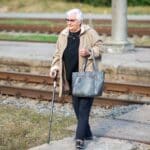 The desire to “aging in place” is the norm for most seniors. Maintaining independence, staying in the familiar home/area, continuing to still do routine chores to have a purpose, all are good. Technology is being created almost daily to aid in living at home. New home services are being offered which are wonderful. Staying home helps also preserve hard earned savings. Many of my clients say they don’t ever want to move from home, many actually refuse to move even after it’s recommended by the doctor. Many spouses and/or adult children have ‘promised’ they won’t ever move their loved one to a “home” and struggle with not fulfilling that promise. Is aging in place really what is best for your loved one?
The desire to “aging in place” is the norm for most seniors. Maintaining independence, staying in the familiar home/area, continuing to still do routine chores to have a purpose, all are good. Technology is being created almost daily to aid in living at home. New home services are being offered which are wonderful. Staying home helps also preserve hard earned savings. Many of my clients say they don’t ever want to move from home, many actually refuse to move even after it’s recommended by the doctor. Many spouses and/or adult children have ‘promised’ they won’t ever move their loved one to a “home” and struggle with not fulfilling that promise. Is aging in place really what is best for your loved one?
Studies show isolation and loneliness lead to higher risk of mortality. This could be because a senior living alone doesn’t have anybody keeping an eye on him or her for health changes or noticing safety risks. A urinary tract infection could present with minor symptoms that, left untreated, could lead to hospitalization. Tripping over a throw rug, clutter or extension cord could result in broken bones which also leads to hospital stays and rehab. It’s harder for seniors to fully recover after each hospitalization.
There are reports that being socially isolated and feeling lonely are linked to poor cognitive performance and quicker cognitive decline. Who among us hasn’t spent a Saturday (or full weekend) on the couch in sweats binge watching TV shows? At the end of that do you feel invigorated and ready to go? I don’t. I feel tired, groggy and lazy. Imagine that feeling day after day, month after month with only occasional visitors or trips to the store to restock food (if a senior can get out). If a brain isn’t exercised on more than watching TV it is like any muscle, it withers away.
Other problems from aging in place include the risk of being targeted for elder abuse. Friendly neighbors or ‘helpful’ people at the grocery store prey on the elderly, especially a senior that is always alone. Seniors living by themselves may not take medications as prescribed; they may not eat balanced meals; they may not drink enough water. They may not move enough leading to weakened muscles and falls. They may not recognize signs of serious health problems and may seek medical help too late.
Retirement communities are a beneficial option for seniors. Independent communities offer friendships, activities, healthy meals, housekeeping, trips to the store and fun excursions. Although they don’t provide personal care, they’re an extra set of eyes to notice if a resident isn’t showing up for meals or is “off”. There are daily exercise classes for residents that become social times too. An article in US News says “Social conversation is one of the most challenging cognitive activities there is, you have to pay attention; you have to be responsive; you have to think about your answer.” Being around others is to help keep a brain active is far more beneficial (and more fun) than crossword puzzles and sudoku. In addition, just by going to the dining room for meals or to the mailbox daily a senior is getting more exercise (and maintaining their strength) than they would at home.
Aging in place is good, don’t get me wrong, but don’t discount the benefits of moving into a retirement community. The support and camaraderie of other residents with similar life experiences and from enthusiastic staff can lead to a whole new world of friendships and opportunities. The extra attention, socialization, something to do, people to talk to and places to go can take a senior who was alone day after day from depression and failing health to a vibrant engaged individual with a purpose and a new will to live.









